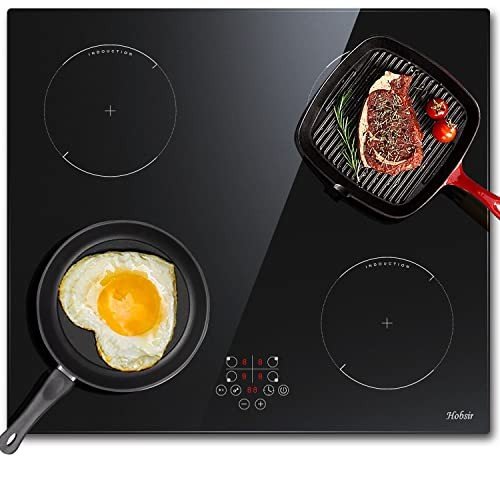Understanding Cookers and Hobs: A Comprehensive Guide
Cooking is an essential element of day-to-day life, and the development of kitchen home appliances plays a significant function in how effectively and successfully individuals prepare their meals. Among these appliances, cookers and hobs are 2 of the most vital instruments discovered in modern kitchen areas. This article digs into the distinctions between cookers and hobs, analyzes their various types, and offers insights on their features, upkeep, and selection process.
What are Cookers and Hobs?
Cookers
Cookers are comprehensive kitchen appliances developed for cooking tasks, usually combining an oven and a hob. Fan Oven Sales are available in different setups and types, accommodating diverse cooking requirements and choices.
Hobs
Hobs, on the other hand, are more concentrated appliances mostly utilized for boiling, frying, and other stovetop cooking techniques. Hobs can be standalone units or an integrated part of larger cookers.
| Function | Cookers | Hobs |
|---|---|---|
| Function | Integrates oven and hob | Stovetop cooking just |
| Style | All-in-one unit | Separate unit or integrated |
| Types | Electric, gas, dual fuel | Gas, electric, induction |
| Installation | Permits more versatility | Built into the countertop |
| Cost Range | Typically greater | Varies widely |
Types of Cookers
1. Electric Cookers
Electric cookers utilize electricity as their main source of power. They often feature an integrated oven and multiple cooking zones on the hob.
Advantages:
- Even heat distribution
- Readily available in various styles (e.g., freestanding, integrated)
2. Gas Cookers
Gas cookers work on natural gas or melted petroleum gas (LPG). They offer immediate heat control, making them a favorite among expert chefs.
Benefits:
- Instant heat modifications
- More inexpensive operational expenses
3. Dual Fuel Cookers
Double fuel cookers combine the heat of gas with the performance of electric ovens. This setup permits for the very best of both worlds, supplying control and constant results.
Benefits:
- Flexible cooking options
- Precise control over stovetop cooking and baking
4. Range Cookers
Range cookers are larger and more powerful than standard cookers, featuring multiple ovens and hobs for substantial cooking tasks.
Advantages:
- Ideal for large households or cooking for events
- Offers numerous cooking options in one home appliance
Kinds of Hobs
1. Gas Hobs
Gas hobs are preferred for their quick heating and strong flame, making them excellent for searing and stir-frying.
Benefits:
- Instant heat and control
- Suitable with any kind of cookware
2. Electric Hobs
Electric hobs warm up using electric coils or glass-ceramic surface areas, providing a modern-day look and efficient cooking.
Benefits:
- Easier to clean
- Uniform surface area suitable for different pots and pans
3. Induction Hobs
Induction hobs utilize electromagnetic fields to heat pots and pans directly, using quick and energy-efficient cooking.
Advantages:
- Safe (cool surface after eliminating cookware)
- Energy-efficient and exact
4. Solid Plate Hobs
These standard hobs utilize solid electric plates that warm up gradually.
Advantages:
- Rugged and durable
- Usually more affordable than other types
Key Features to Consider
When choosing a cooker or hob, several features should be taken into consideration:
- Size and Space: Consider the size of your kitchen and the amount of office required.
- Cooking Style: Choose based on choice-- gas for control, induction for performance, and so on.
- Effectiveness Ratings: Look for energy-efficient designs to lower utility costs.
- Alleviate of Cleaning: Smooth surface areas help with simple upkeep.
- Safety Features: Automatic shutoff, flame failure devices, and child locks improve safety.
Maintenance Tips
Preserving cookers and hobs extends their life expectancy and makes sure safe operations.
- Routine Cleaning: Wipe down surface areas after use to avoid buildup.
- Inspect Seals: Check oven door seals regularly for wear and tear to maintain performance.
- Service Regularly: Schedule expert maintenance at least as soon as a year.
- Suitable Cookware: Use pots and pans proper for your hob type to avoid damage.
Frequently Asked Questions (FAQs)
What is the distinction in between a cooker and a hob?
A cooker combines an oven and hob in one system, while a hob is normally a standalone appliance for stovetop cooking.
Do I require an expert to set up a gas cooker or hob?
Yes, professional installation is recommended for gas devices to guarantee safety and compliance with local guidelines.
Can I utilize any type of cookware on induction hobs?
Induction hobs require magnetic pots and pans. Stainless-steel or cast iron pots work best. Ovens Online -magnetic materials will not warm up.
Are electric cookers more energy-efficient than gas cookers?
While both have advantages, electric cookers tend to be more energy-efficient general, specifically with modern, high-efficiency models.
How frequently should I clean my cooker or hob?
It is best to clean them after each use and perform a comprehensive cleaning weekly to avoid buildup and residue.
Understanding the differences, functions, types, and upkeep ideas for cookers and hobs is essential for any home cook. By picking the best device fit to their culinary needs, users can improve their cooking experience, making meal preparation an efficient and satisfying task. Whether choosing for the instantaneous control of gas or the streamlined effectiveness of induction, selecting the proper cooker or hob can cause a notably enhanced kitchen experience.

